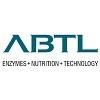Check out what is new in Poultry Industry
Find the best technical articles, forums, and videos on Poultry Industry at Engormix. Enter now and interact with the world's largest agricultural social network.

Join Patricia Jazo, Director of FIGAP, as she invites the industry to FIGAP 2026, happening October 21–23 at Expo Guadalajara. A global meeting point for equipment, machinery, and now expanded nutrition—bringing the entire production chain together in one place. ...
Comments : 0
Recommendations: 1
Heading to PEAK 2026 in Minneapolis?
Our colleagues Andrew Flemming and Carlos Toro will be representing HATO at the Minneapolis Convention Center from 14 to 16 April 2026, ready to talk about practical lighting solutions and the daily challenges happening inside...
Comments : 0
Recommendations: 1
Recommended events
May 5, 2026
Canada - Alberta - Edmonton

Angela Guaiume (Cargill) explains how monitoring hen body condition helps to improve egg production and feed efficiency, while also sustaining laying consistency and reducing feed costs, during this Engormix interview at IPPE 2026 in Atlanta. ...
Comments : 1
Recommendations: 0

Vivek Kuttappan (Cargill) shared his research on the beneficial effects of postbiotics and phytogenics on mitigating APEC severity in laying hens, during this Engormix interview at IPPE 2026 in Atlanta. ...
Comments : 0
Recommendations: 0

Manuel Da Costa (Cargill) comments on advances in nutritional solutions using postbiotics and phythogenics, and how microbiome analysis helps identify opportunities or specific issues to address, during this Engormix interview at IPPE 2026 in Atlanta. ...
Comments : 0
Recommendations: 0
Featured comment:

There still seems to be considerable confusion about the concept of optimum dietary density and birds eating to meet their energy requirements or needs: “The broiler still eats quite precisely to its energy needs and alters its feed intake in response to variable diet energy level.” There is a classic graph in the 1974 paper by Colin Fisher and Brian Wilson, titled "Response to dietary energy concentration by growing chickens" (published in Energy requirements of poultry, British...
Comments : 11
Recommendations: 6

Mr. Uday Singh Bayas, President of IPEMA (Indian Poultry Equipment Manufacturing Association), speaks about Poultry India as a global industry event promoted by IPAMA. He points out its role in advancing poultry equipment, biosecurity, sustainable farming practices, and technical knowledge through seminars, exhibitions, and international participation. ...
Comments : 0
Recommendations: 0

Marcio Ceccantini, Global Technical Manager for Vitamins at Adisseo, discusses the evolving role of vitamins in modern animal production and introduces the Microvit® Nutrition Guide 2026, featuring updated recommendations for 18 species and 36 production phases to support performance and nutritional precision worldwide. ...
Comments : 0
Recommendations: 1


Lost in the Market Uncertainty Caused by the Outbreak
Suggested link
Introduction Advancing our knowledge of animal nutrition has been a globally significant research field for approaching a century. The vast knowledge accumulated on how to meet the nutritional requirements of livestock has allowed researchers to evolve towards use of nutrition to achieve the wider aims of global food security. In parallel to the highly focused advances in animal nutrition, other researchers were grappling with the seemingly intractable conflict between globalized...
Comments : 0
Recommendations: 0

Thomas Dixon, Global Marketing Manager, Hy-Line International, speaks about the company’s 90-year legacy, from Dr. Henry A. Wallace’s pioneering research to today’s advanced genetic innovation shaping the future of egg production. ...
Comments : 0
Recommendations: 1

Jonathan Cade, President of Hy-Line International, reflects on 90 years of innovation since 1936. He shares how listening to customers, investing globally, and developing people drive Hy-Line’s growth. A vision for the next chapter of genetics, partnerships, and continuous improvement worldwide. ...
Comments : 0
Recommendations: 1

Mr. O. P. Singh, Managing Director at ABTL, speaks about India’s role in the global poultry industry. He points out the country’s production strength, export potential, and international standards. A forward-looking view on growth, trade, and what tomorrow demands. ...
Comments : 0
Recommendations: 2
This intensive training program has been specifically designed for those who want to learn more about poultry house environmental management during hot weather. The workshop consists of lectures as well as hands on group exercises designed to help attendees gain a firm understanding of the principles behind hot weather poultry...
Comments : 0
Recommendations: 0

Fran Alonso, Veterinarian and Global Commercial Director at Liposa, explores advanced approaches to maximizing fat digestibility and dietary energy efficiency. ...
Comments : 0
Recommendations: 0

Erik Visser, CEO at Hamlet Protein, shares his outlook on animal protein production for 2026, highlighting poultry and aquaculture as key growth drivers. He discusses regional dynamics, feed economics, sustainability, and the strategic importance of ROI and adaptability for producers. ...
Comments : 0
Recommendations: 0

Héctor Leyva-Jiménez (United Animal Health) shares his research on the impact of probiotics on fly populations in poultry farms, in this Engormix interview at IPPE 2026 in Atlanta. ...
Comments : 0
Recommendations: 0

Roshan Adhikari (CJ Bio America) speaks on the use of branched-chain amino acids (leucine, isoleucine, valine) and tryptophan in layer nutrition, in this Engormix interview at IPPE 2026 in Atlanta. ...
Comments : 0
Recommendations: 2

Mueez Ahmad (Arm & Hammer) discusses the increasing costs of this disease in the poultry industry and offers advice on how to control it, in this Engormix interview at IPPE 2026 in Atlanta. ...
Comments : 0
Recommendations: 0


FIGAP 2026: The Scientific And Technological Exhibition Of The Livestock Industry
Suggested link

Vijay Durairaj (Huvepharma) shares insights into Turkey Coccidiosis and the data obtained from his research, in this Engormix interview at IPPE 2026 in Atlanta. ...
Comments : 0
Recommendations: 0













.jpg&w=3840&q=75)

















.jpg&w=3840&q=75)















